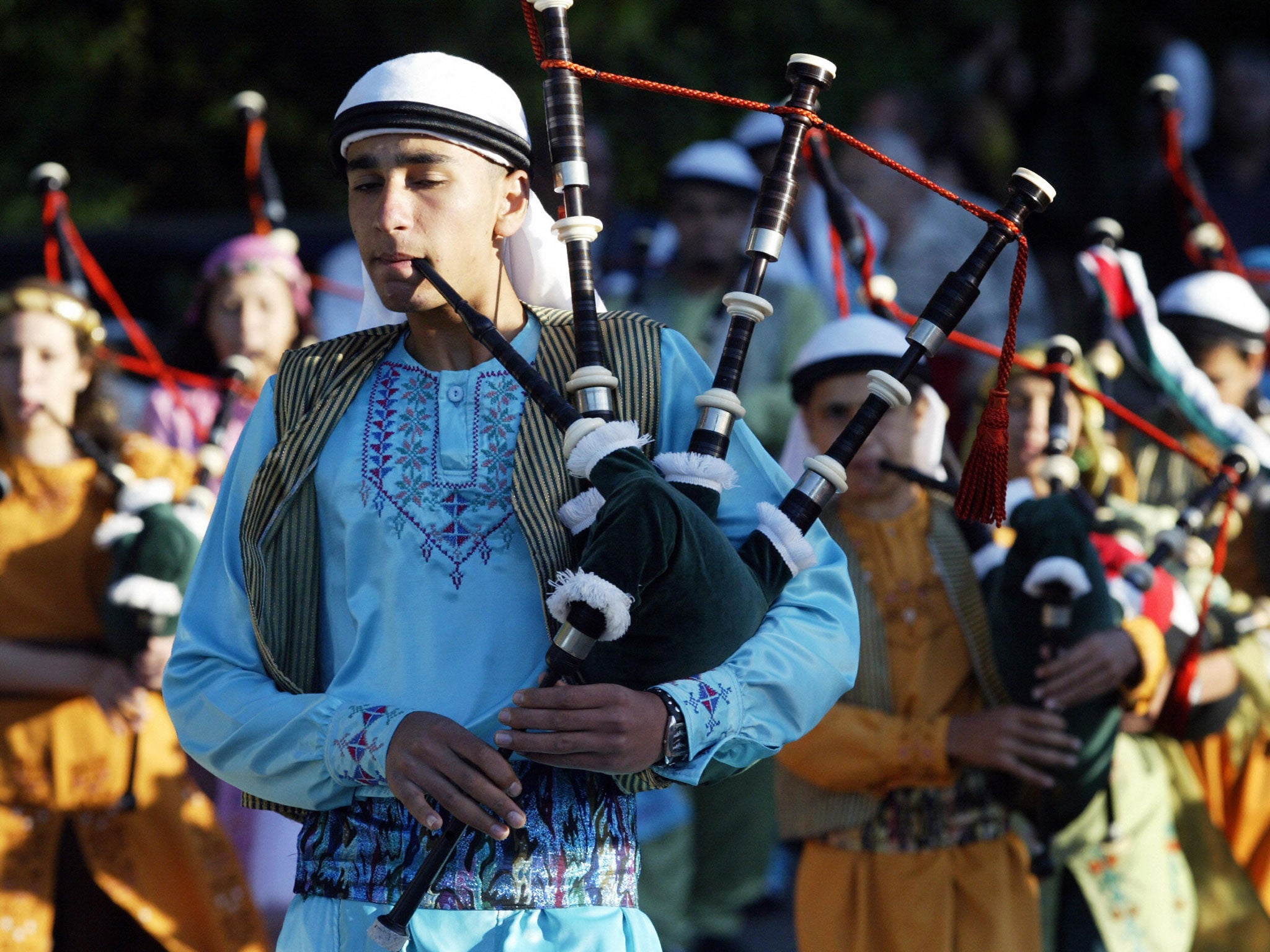The pipes, the pipes are calling: Highland skirl now has global appeal

Your support helps us to tell the story
From reproductive rights to climate change to Big Tech, The Independent is on the ground when the story is developing. Whether it's investigating the financials of Elon Musk's pro-Trump PAC or producing our latest documentary, 'The A Word', which shines a light on the American women fighting for reproductive rights, we know how important it is to parse out the facts from the messaging.
At such a critical moment in US history, we need reporters on the ground. Your donation allows us to keep sending journalists to speak to both sides of the story.
The Independent is trusted by Americans across the entire political spectrum. And unlike many other quality news outlets, we choose not to lock Americans out of our reporting and analysis with paywalls. We believe quality journalism should be available to everyone, paid for by those who can afford it.
Your support makes all the difference.They are perceived as being more Scottish than whisky, kilts and haggis, not to mention midges and driving rain. But much further afield from the majestic Highlands the popularity of bagpipes has raised an eyebrow or two. When hundreds of Palestinians gathered in Gaza last week to celebrate the freeing of 26 prisoners from Israeli detention, the music that accompanied their celebration was provided by bagpipes.
The exact origins of what players refer to as "the pipes" are unclear. They are mentioned in the Book of Daniel, referred to by the ancient Greeks – who apparently played pipes made of dog skin – and were said to have been expertly played by the Roman emperor Nero.
What is certain is that while some claim their popularity may be on the wane in western Europe, in the arid deserts of the Middle East and elsewhere, bagpipes are booming.
According to some commentators, the pipes are now all that remains of the British Empire in the Middle East. But unlike many now despised remnants of imperial rule, bagpipes, the calling card of Highland regiments, have flourished.
Sherri Muzher, a journalist and Palestinian activist, has written about the pipes' popularity in her home country, where she said they were one of the many "surprises" to be found in the region.
"When Britain colonised Palestine in the early 20th century, the bagpipes were a positive feature left behind," she said. "The Scottish Highland bagpipe became well-known worldwide and Palestine was no exception."
Ms Muzher said the pipes had become incorporated into Palestinian culture and celebrations. "Bagpipes have come full circle," she said. There is even a bagpipe band, called Guirab, that was formed in 1989 at the Burj al-Shemali refugee camp in Lebanon, and now tours across Europe.
It's not just the Middle East; the heart of Pakistan's Punjab province is the last place many people might expect to hear the pipes' haunting wail.
But Sialkot, a city of three million people, now exports more than 100,000 sets of bagpipes a year. MH Geoffrey and Co is the oldest-established bagpipe maker in Sialkot. The company was founded in the 19th century when a British army officer approached a local tradesman and asked him to repair his bagpipes.
Today, the company exports more than 3,000 instruments a year, with deliveries to the US and even Scotland. Each set is handcrafted and can cost up to £1,000.
"My sons are now learning the business and helping me to run it," said Zafar Geoffrey, whose grandfather started the company. "One day, this whole business will be given to the next generation – the fourth generation to run it."
Rashid Akhtar, president of the Pakistan Cultural Society in London, said flutes and pipes were prominent in traditional music. "Together with the drums they are among the most popular forms of music in Pakistan," he said.
He added: "Bagpipes have been travelling here and there for hundreds of years with the British and in particular Scottish people. Some brought these interesting and unusual items to Pakistan, where they are now very important to people."
In Glasgow this weekend, the universal appeal of the bagpipes has been evident at the World Pipe Band Championships, one of the world's largest gatherings of pipe bands, which ends today. Dozens of bands from across the British Isles have been joined by several from countries such as Canada, New Zealand, Australia, Mexico, Oman and Zimbabwe.
Join our commenting forum
Join thought-provoking conversations, follow other Independent readers and see their replies
Comments